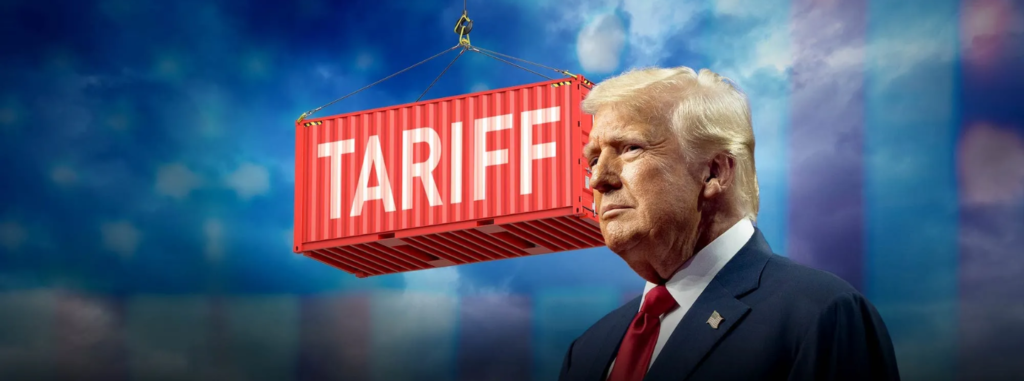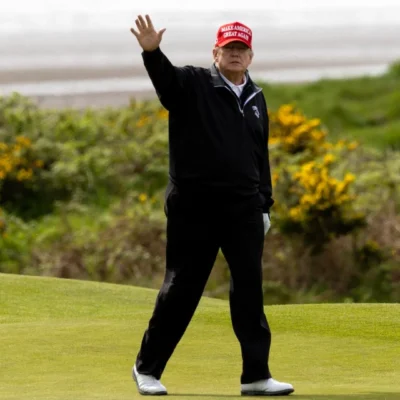In a market-moving decision, the U.S. government announced it would exempt certain electronics from tariffs on Chinese imports. This move immediately boosted investor confidence, sending shares of major technology companies and automakers higher.
The tariff exemptions come amid ongoing trade discussions between the U.S. and China. Analysts believe this development could mark a turning point in global supply chain relations and investor sentiment. Companies like Apple, Tesla, and General Motors experienced immediate gains, with the Nasdaq and S&P 500 indices climbing as a result.
Read more about U.S.–China trade talks
Details of the Tariff Exemptions

According to the U.S. Trade Representative (USTR), several key tech components—including semiconductors, touchscreens, and automotive sensors—will no longer face the 25% tariff imposed during the previous trade disputes. These components are vital for American tech and auto companies, which heavily depend on Chinese manufacturers.
The USTR justified the move by stating that these exemptions will help ease inflationary pressures and avoid disruption in sectors critical to national infrastructure and innovation.
View the USTR’s full exemption list here
How Tech Stocks Responded
Apple saw its stock rise by 3.4% immediately following the announcement. The tech giant imports several iPhone and MacBook components from China, and analysts suggest the exemption could save the company hundreds of millions of dollars over the next year. Similarly, semiconductor giants like Nvidia and Intel recorded gains of 2.7% and 2.1%, respectively.
“Any relief from tariffs is welcomed by the tech industry,” said Tom Leech, a senior market analyst at Fidelity. “Many of these companies rely on components that simply aren’t available elsewhere at the same scale and price.”
Explore how semiconductor stocks are reacting
Auto Industry Also Benefits
Auto manufacturers also welcomed the exemption news, particularly companies like Tesla, General Motors (GM), and Ford, which import electronic parts and battery cells from China. Shares of Tesla jumped 4.1%, while GM and Ford gained 2.5% and 1.8% respectively.
These gains reflect the market’s optimism that lower production costs may lead to higher profits. EV manufacturers, in particular, are expected to benefit as battery-related imports are among the items now excluded from tariffs.
“This exemption is huge for electric vehicles,” said Carla Andrews, an automotive economist at BloombergNEF. “It could significantly reduce the cost of battery pack production, which is one of the most expensive components in EVs.”
Read more about EV market trends
Analysts Predict Longer-Term Gains
Experts are now predicting that the exemption could trigger a longer bull run for both tech and automotive sectors. The reduced cost of production may allow companies to reinvest in innovation, R&D, and expansion.
“This is more than just a temporary market reaction,” said Jeff Harlan of JP Morgan. “It represents a structural improvement in margins and supply chains. If this trend continues, we could see a strong second half of the year.”
See analyst insights on market projections
Geopolitical Strategy Behind the Move
The exemptions are seen as part of a broader strategy to ease tensions between the two economic giants. While the Biden administration has maintained many of the tariffs introduced under President Trump, recent months have shown a willingness to reconsider measures that negatively impact domestic businesses.

Some experts suggest this policy shift could be designed to strengthen economic ties in strategic sectors such as artificial intelligence, EVs, and quantum computing.
“The U.S. is likely prioritizing its competitive advantage,” said Elaine Su of the Brookings Institution. “Exempting certain tech-related goods signals that we want to support domestic players without completely decoupling from China.”
Learn more about U.S.–China tech policies
Concerns Remain Among Policymakers
Not everyone welcomed the exemption news. Some lawmakers expressed concern that relaxing tariffs might undermine U.S. efforts to push for fair trade practices and greater transparency from China.
Senator Josh Hawley (R-MO) criticized the decision, arguing that it sends the wrong message at a time when the U.S. should be reducing its dependency on Chinese manufacturing.
“We must protect American jobs and intellectual property,” Hawley stated. “Removing tariffs on Chinese imports weakens our negotiating power.”
Debate over China tariffs continues
Investors Watch for Next Moves
Despite political concerns, investors are hopeful that this move may open the door for further cooperation between the U.S. and China in the trade arena. Traders are watching closely for any follow-up actions, such as the potential re-negotiation of broader tariff frameworks or new incentives for domestic manufacturing.
In the meantime, tech and auto companies are expected to benefit significantly in the short term. Industry leaders may also take this opportunity to re-evaluate global supply chains and find long-term cost-saving measures.
Track real-time market reactions
Conclusion
The decision to exempt certain electronics from tariffs on China has provided a much-needed boost to U.S. tech and auto sectors. While debates over trade policy continue, the immediate market reaction shows that investors view this as a positive development. With stocks rising and cost pressures easing, this shift could signal a more stable period for both industries as they continue to recover from global supply chain disruptions and economic uncertainty.
Stay updated on trade and market developments here.
Also Read – Record January Trade Deficit Raises Economic Red Flags






